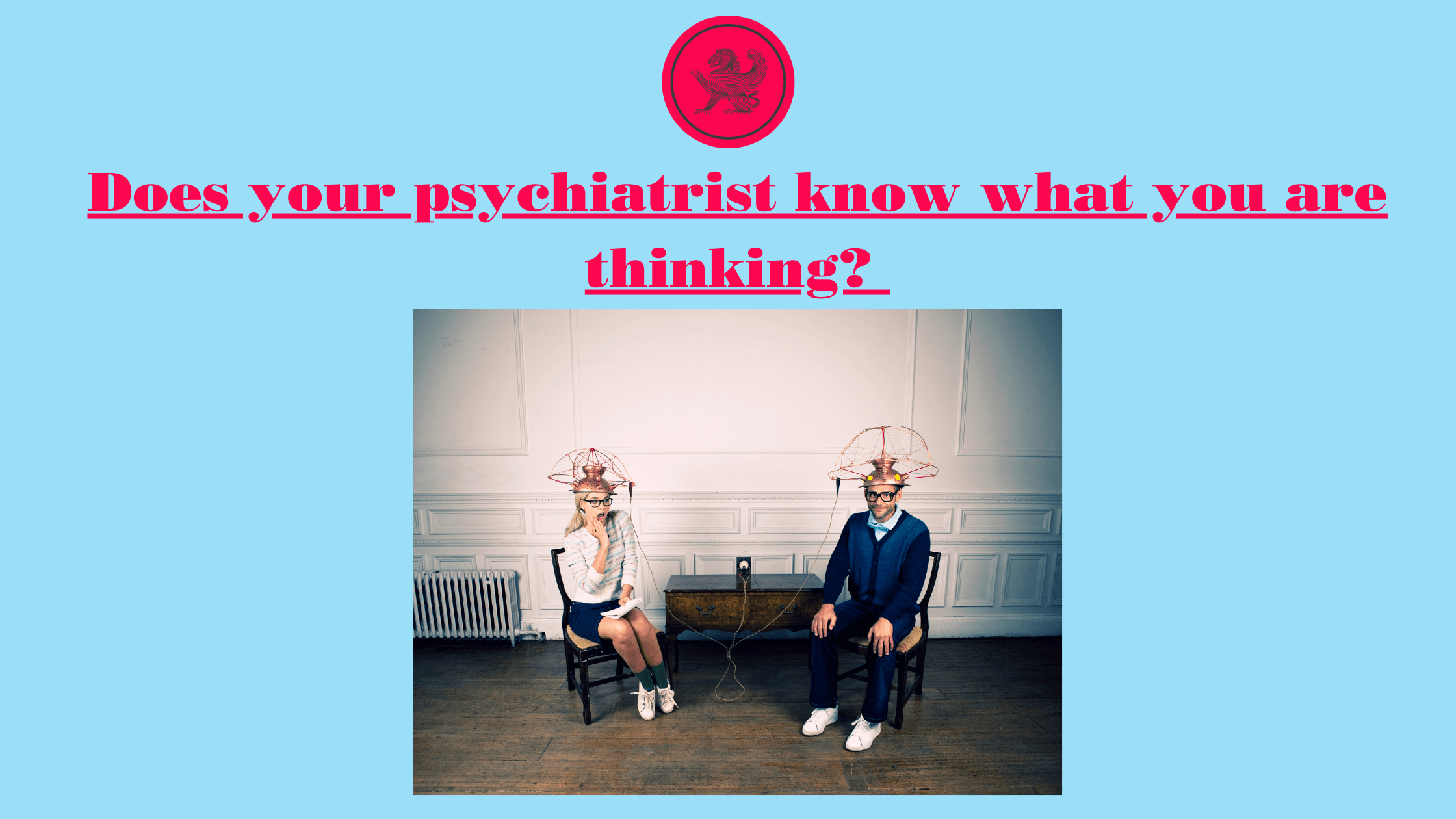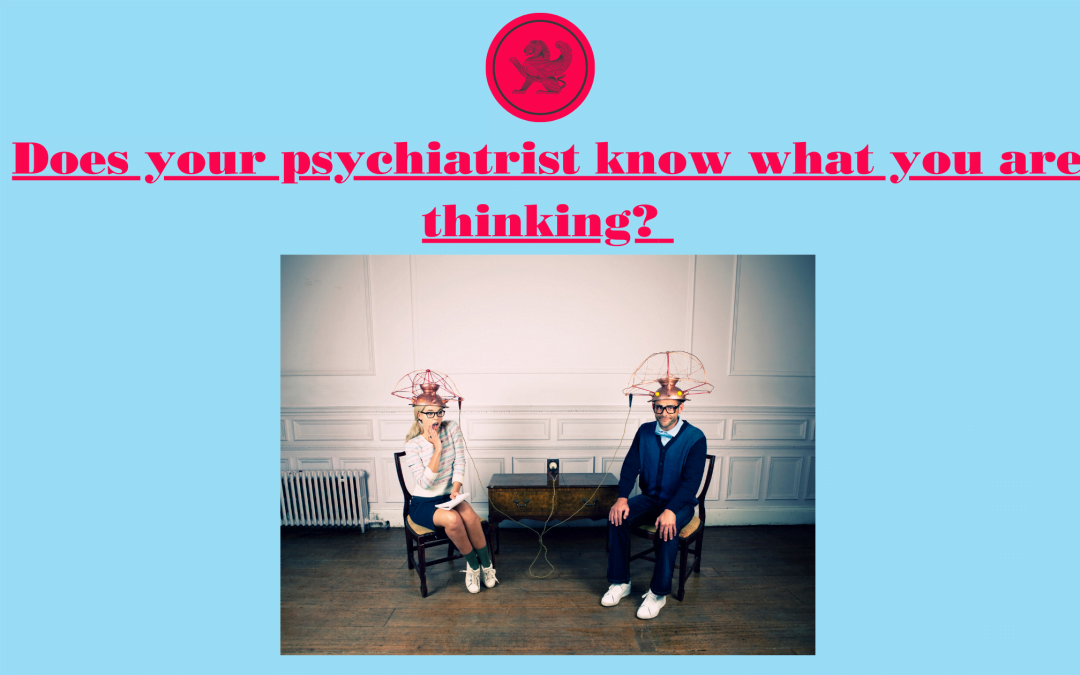Patients and other medical professionals often seem to overestimate what psychiatrists can know about their patients’ thoughts. Psychiatrists are trained professionals skilled in understanding and analyzing human behaviour, emotions, and thoughts. However, they do not possess the ability to read minds or determine with absolute certainty when a patient is lying.
What can psychiatrists do:
1. Understanding thoughts:
• Empathy and Insight: Psychiatrists use their empathetic skills and insight to understand patients’ feelings and thoughts as best as possible.
• Behavioral Observations: They observe a patient’s verbal and non-verbal behaviour to glean insights into their emotional state and thoughts.
• Clinical Experience: Through years of clinical experience, psychiatrists may become adept at recognizing patterns in thinking and behaviour.
2. Detecting Honesty:
• Inconsistencies: Psychiatrists may notice inconsistencies in a patient’s narratives or behaviours that might suggest they are not being entirely truthful.
• Clinical Signs: Certain clinical signs and behavioural cues may hint at dishonesty, but they are not foolproof.
• Therapeutic Relationship: Establishing a trusting therapeutic relationship is crucial for open communication. If a patient feels safe, they are more likely to be honest.
Limitations of a psychiatric interview:
• Not Mind Readers: Psychiatrists can’t know what a patient thinks.
• Ethical Practice: It is also essential for psychiatrists to approach their patients without assuming dishonesty, maintaining an ethical and non-judgmental stance.
• Objective Assessment: Accurately determining whether a patient is lying can be challenging and is typically not entirely objective.
Importance of Honesty:
• Treatment Efficacy: The efficacy of psychiatric treatment relies significantly on the honesty and openness of the patient.
• Trust: Developing trust between patient and psychiatrist is critical for a successful therapeutic relationship.
Note:
Psychiatrists utilize their training, observation skills, and the therapeutic relationship to make educated assumptions and clinical judgments about what a patient might think or feel. While they might develop hypotheses about a patient’s sincerity, they operate by providing a safe and non-judgmental space to foster honest communication.
I sometimes say to patients I can help them with anything as long as I know exactly what the problem is.
In cases where knowing whether a patient is being truthful is clinically crucial (for instance, in assessing suicide risk or substance use), psychiatrists may use corroborating information from family, friends, or other healthcare professionals, always maintaining respect for confidentiality and ethical guidelines.
Ultimately, a psychiatrist can do many things to help a patient, but only if we know the truth. And the whole truth.


